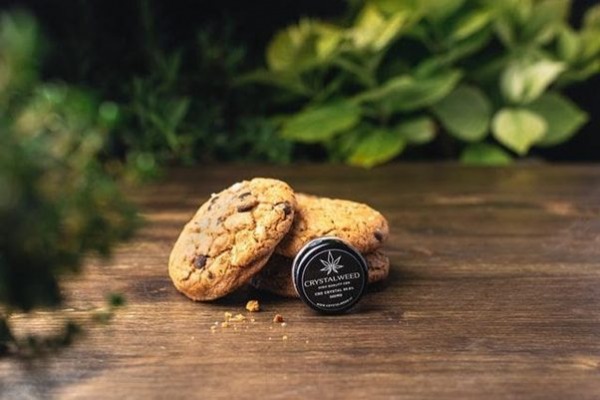
Cannabidiol, also referenced as CBD, is one of the primary cannabinoids in the cannabis genus. It’s more prevalent within the hemp species of cannabis, with the second primary cannabinoid, tetrahydrocannabinol, also referenced as THC being most prevalent in the marijuana species of cannabis.
CBD and THC are relatively identical in structure (and virtually every other way) except that THC acts as an intoxicant and CBD does not. CBD properties primarily lean towards self-care and wellness.
“Gallup” conducted a survey two years ago revealing that “one out of seven Americans equating to 14% use CBD in some capacity as a self-care tool.” As the compound continues to be present on the market, hesitant people have become curious to try CBD products.
Many are taking strides to educate on exactly what is CBD, in order to become better informed before making the actual commitment. While the demand is great and the presence is strong, misinformation still follows the cannabinoid.
When attempting to gather accurate literature, it’s essential to follow resources that specialize in cannabidiol, for which you’ll find many trusted, reputable companies online. Plus, you can speak with your primary physician for guidance.
Facts To Be Aware Of Concerning CBD Oil
Over two years ago, one out of every seven people in the United States was consuming CBD. The products are now becoming a staple in each household’s medicine cabinet. Those who found themselves not quite sure about the compound now seek more information to guide them towards a commitment.
Steering clear of the fallacies and leaning towards resources versed on the subject will ensure you’re armed with adequate literature to move forward in the direction you’re hoping to begin, perhaps with a new self-care regimen.
Find statistics relating to the cannabinoid at https://supplements101.net/cbd-statistics/.
Some facts often miscommunicated online include:
- Claims indicate CBD is non-psychoactive. That is not entirely accurate.
There’s a difference in the terms psychoactive and intoxicant. A psychoactive element directly affects mood and cognition in the mental processes. CBD indeed affects mental capacity in that it presents a calming, relaxed result. It will not intoxicate in the way that THC is capable. THC is also psychoactive, but it can impair an individual with its intoxication.
CBD doesn’t produce an intense euphoria or “high” like you’ll find when consuming marijuana rich in THC.
- Dosing is not down to a universal standard to this point.
Finding your most effective dose is not necessarily a straightforward task. There are no guidelines that will direct you to a precise measurement or universal standard that will work across the board. Each person’s body responses are unique to the substance, with speculation that it could be partially due to (quote) – “genetic mutations of cannabinoid receptors” per individual.
That technically means if you have a “CB1 receptor” that varies from a friend or perhaps family member, each of you could potentially respond in unique ways when consuming a comparable dose of the cannabinoid. That means an effective dosage for one person might not work the same for someone else.
Numerous other factors play a role in the overall effect, such as the product you choose, the delivery method, and the physiology.
- What about safety?
If you’re genuinely left to use experimentation to determine an effective dose or perhaps “trial and error,” the first question would be where is CBD as far as safety. The “universal” suggestion to remain safe with dosing is to start with the smallest possible amount and work towards the most effective.
Clinicians determine cannabidiol has a “favorable profile for safety.” The reason to come to these conclusions is due to the cannabinoid not altering primary vitals like blood pressure, heart rate, or temperature within the body, plus there are no effects on psychological functionality.
Even in the long term, doses as great as 1500 mg were well received. Still, there are potential side effects with some individuals reporting adverse reactions, including fatigue, decreased appetite, excessive drowsiness, diarrhea, vomiting, and convulsions.
The compound can also interfere with specific prescriptions making it critical to check with a physician before beginning CBD in combination with medications.

- Legalities can be confusing for newcomers.
For newbies, the term “cannabis” inflicts a sense of fear and uncertainty in the legal sense. To those unfamiliar, it appears odd that a substance associated with cannabis is acceptable throughout the United States. A lot of the misunderstanding comes in the form of the terminology and the laws themselves.
The cannabis genus is like a grandparent plant. It has multiple species that fall under it. Cannabis and the term “marijuana” are often used interchangeably. But cannabis is the umbrella, with marijuana coming as a species under that umbrella, as does hemp, another species.
Hemp became legal in 2018 with the signing of the Farm Bill. Any cannabis with less than 0.3% THC is industrial hemp. It is rich in CBD and is not a controlled substance under federal law. It’s critical, though, to check your specific state. Each carries its own legislation concerning CBD. Some consider the compound as illegal despite federal legalization.
Final Thought
The source from whom you derive your Cannabidiol literature is critical so that it’s accurate and thorough. A knowledgeable, reliable company versed in the cannabinoid is the ideal resource to provide information to help you make the most educated decisions.
A physician is also a starting source to help you find these reputable CBD companies to get you started on your path. Go here to learn the benefits you might see from your course.